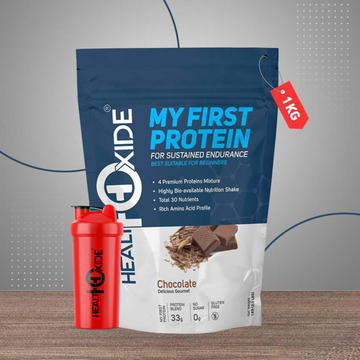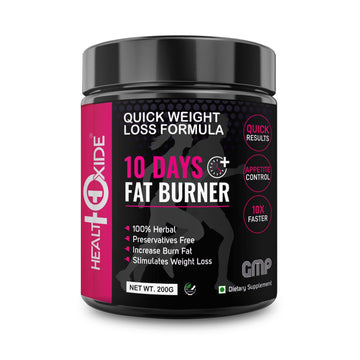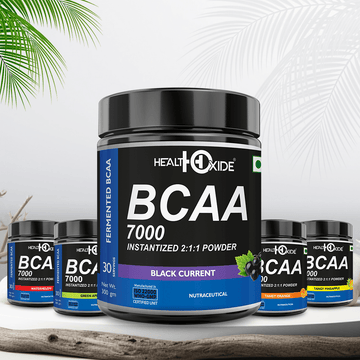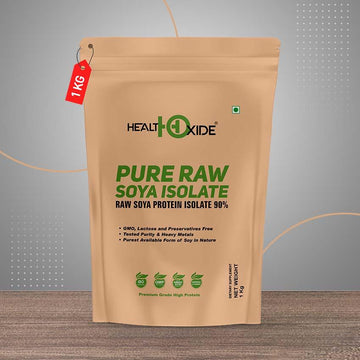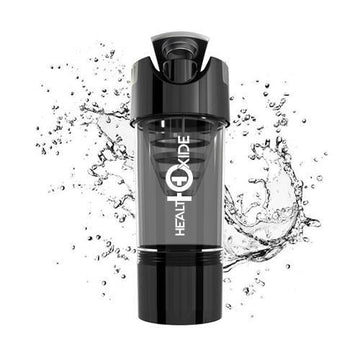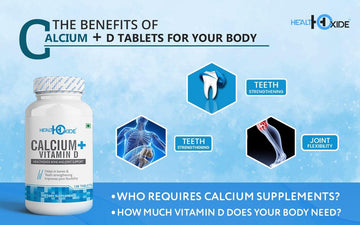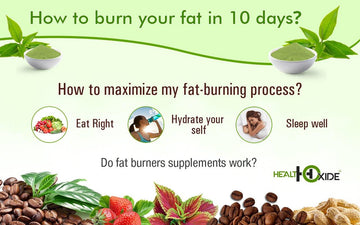Everyone today understands that having adequate Calcium in the body boosts bone strength and is an important step towards preventing the onset of osteoporosis. Calcium is a building block of your body's bones that helps you live a healthy life without bone troubles. Despite taking calcium supplements, people suffer from bone issues because if the body is deficient in Vitamin D, Calcium in the body cannot reach its full potential.
Vitamin D and Calcium work together in your body – while Calcium maintains bone health, Vitamin D helps the body absorb Calcium. So, even if you regularly take your calcium supplements, it will not help build your bones if you do not have adequate Vitamin D to support the consumption.
Calcium
You can be prone to several diseases if you are deficient in Calcium. It may include chronic diarrhoea, hypothyroidism, Vitamin D deficiency, osteoporosis, brittle bones, amongst many others. People who are lactose intolerant and avoid dairy products or follow a vegan diet are at high risk of osteoporosis.
Here is where calcium supplements play a vital role.
Natural Sources of Calcium
The bones are where the maximum amount of Calcium is stored in the body.
The dietary sources of Calcium are,
- Milk
- Yogurt
- Tofu
- Cheese
- Calcium-fortified juices and cereals
- White beans
- Sardines
The amount of Calcium that one must consume regularly varies according to age, sex, and the status of hormones of the body. Endocrinologists highly recommend calcium tablets for women as maximum women are deficient in Calcium and suffer from osteoporosis.
Benefits of Calcium for the body
Calcium plays a vital role in many bodily functions. It helps in blood circulation, releases hormones, and improves muscle mobiity. It also helps to transmit messages from the brain to other parts of the body.
Calcium also maintains bone and tooth health.
Some studies show that calcium supplements aid in reducing symptoms of PMS. Most women who experience symptoms of PMS show deficiency in Calcium and magnesium.
How much Calcium do you need? The office of dietary supplements state the below as the required amount for Calcium required by humans at different ages.
- 0-6 months – 200 mg
- 7- 12 months – 260 mg
- 3 years: 700 mg
- 4- 8 years: 1000 mg
- 9 – 18 years: 1300 mg
- 19-50 years: 1000 mg
- 51- 70 years: 1000 mg for males and 12mg for females
- 71 years and above: 1200 mg
The amount of Calcium required by pregnant women varies according to age, but an approx. of 1000- 1300 mg is recommended.
The best way to keep up your calcium intake is to take calcium tablets.
Who requires Calcium supplements?
The body doesn't produce Calcium naturally and can be added only through supplements or through food.
You may be prescribed a supplement if
- You are vegan
- You are nearing menopause
- Allergic to cow's milk
- Suffer from anorexia nervosa.
Always read the nutrition facts carefully and check for DV (Daily Value). Calcium is listed on 1000 mg per day, which means 20 % DV is 200 gms of Calcium, 15 % DV means 150 gms of Calcium.
Vitamin D
The best natural source of Vitamin D is the Sun. The best way to increase Vitamin D levels is to expose yourself to the Sun, but this source is hard to find during peak winters, or for those living in extreme temperatures. Do note, overexposing yourself to the Sun can also cause skin related ailments.
However, Vitamin D is an essential vitamin that improves calcium absorption in the body. Vitamin D's natural sources are – Vitamin D- fortified milk, egg yolks, fatty fish.
To avoid being deficient, take a Vitamin D supplement.
Signs that you are not taking in enough Vitamin D
1) You use sunscreen every time you step out.
2) You have dark skin.
3) You are above the age of 50. As you grow older, the body finds it difficult to produce Vitamin D.
4) You suffer from a disease that restricts Vitamin D absorption.
5) You are overweight. Vitamin D may be absorbed by the body fat, making it unavailable for body needs.
Symptoms of Vitamin D deficiency
- Experience severe backaches
- Feel tired frequently, and experience overall lethargy
- Difficulty climbing stairs, getting up from the floor, etc.
- Stress fractures in hips, legs, and pelvis.
How much Vitamin D does your body need?
The Institute of Food and Agricultural Sciences have stated the recommended IUs based on age:
- Children up to teenagers – 600 IU
- Adults under 70 – 600 IU
- Adults over 70 – 600 IU
- Pregnant or breastfeeding women – 600 IU
Reasons to opt for Health Oxide Calcium + Vitamin D tablets.
- It is difficult for most people to consume the required amount of calcium and vitamin D through regular dietary sources. Moreover, if you're not fond of dairy products or are allergic to them, you are at higher risk of calcium deficiency. Supplements provide the necessary amount of Calcium, so you are no longer at risk of calcium deficiency.
- To absorb Calcium, the body needs Vitamin D. This means that merely taking calcium tablets will not help. This supplement is the best choice available in the market as it offers both Calcium and Vitamin D3.
- It helps in better functioning of the immune system and prevents the occurrence of various diseases.
4. It puts you at a lesser risk of osteoporosis and other bone issues.
The supplement contains 625 mg of Calcium and 400 IU of Vitamin D and is a vegan product. Consult with your doctor before taking this if you suffer from any lifestyle disease and are on regular medications or other supplements.
To save more time researching which brand offers Calcium and Vitamin D in one capsule, place your order with Health Oxide.
